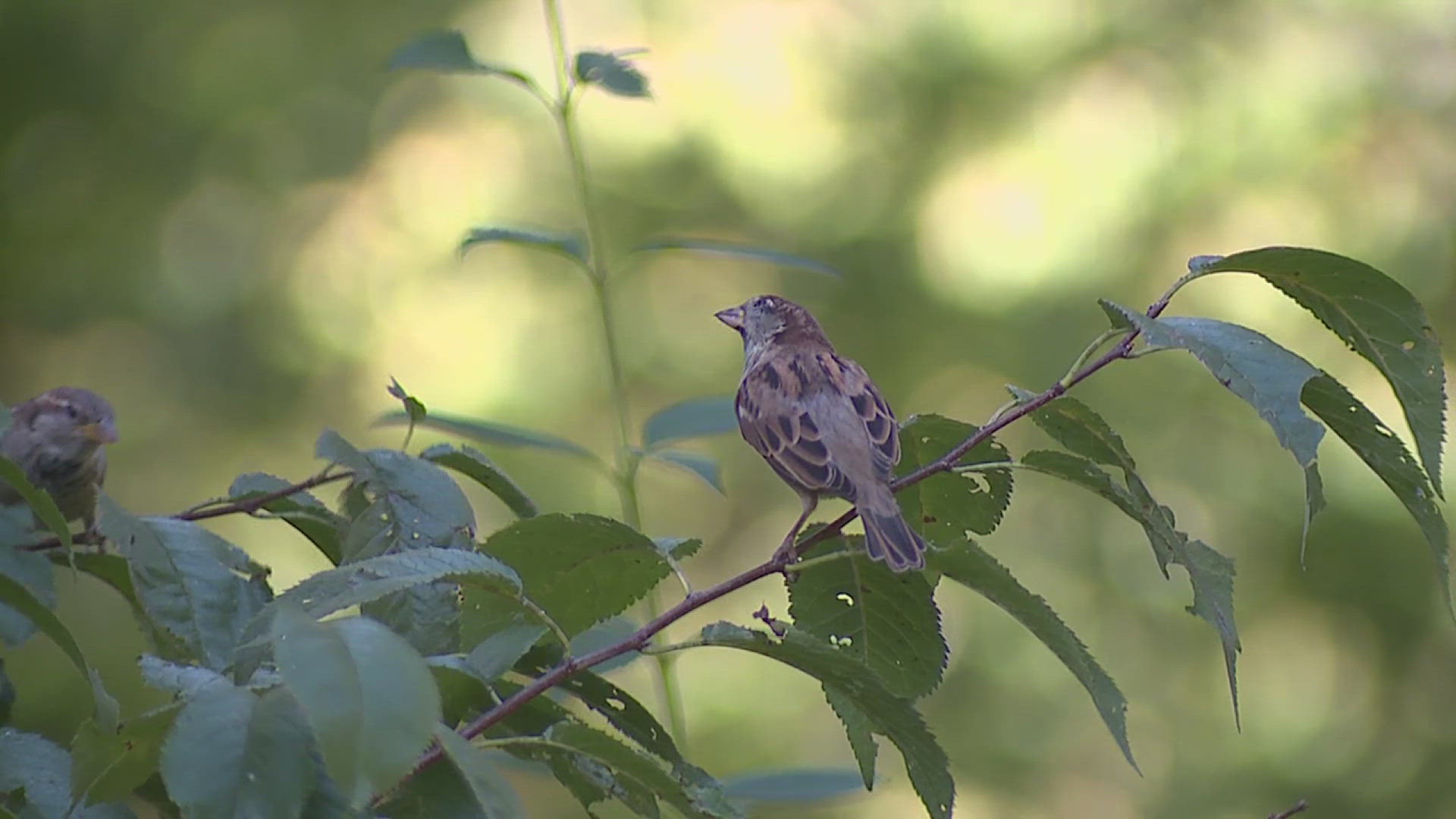ROCK ISLAND, Ill. — The Centennial Bridge will be a little darker than usual on Thursday night.
River Action announced that the bridge's lights will be turned off overnight on Thursday, Sept. 19 to help with ongoing bird migrations traveling through the Quad Cities. That's because those extra lights can disorient the birds making their way south for the winter.
Benjamin Van Doren, an assistant professor for the Department of Natural Resources and Environmental Sciences at the University of Illinois Urbana-Champaign, specializes in protecting migratory birds from manmade threats. That includes city lights.
When birds get ready to migrate every fall, they wait until the sun goes down. They're used to flying in complete darkness.
"These birds evolved in a world where lights only came from the sky, and typically at night they were very faint," Van Doren said. "So when we’ve added all this light from the ground into the environment, this is an effect a stimulus they have not encountered in their evolutionary history, they’re not really programmed to know what to do with."
Lights can draw birds towards cities, away from their normal migration routes. It can also disorient them and puts them at risk for fatal window strikes.
"The light plays an important role in this disorientation, attraction. And so turning off lights at night helps lessen that negative effect on the birds," Van Doren said.
If you want to help those birds along, keep those windows dark at night.
Another factor affecting migration? Unseasonably warm weather. Van Doren said birds mostly rely on the length of days to know when to migrate. But when picking a day to fly, they wait for winds from the north to help them along.
"Those northerly winds typically coincide with a nice cold front that is moving through, bringing cooler air, and so it’s probably that temperature is playing a rolling combination with the wind," Van Doren said.
Our region has been lacking those winds in recent days. But wind and rain this weekend could bring birds overhead—or they could choose not to.
"That’s the beauty of bird migration, is that we can forecast it to some degree, but also to some degree it’s a natural phenomenon that we just have to enjoy and see what happens," Van Doren said.
So far this fall, more than 27 million birds have passed over Scott County. That's according to BirdCast, a website tracking migratory birds. There weren't many flying Thursday night, but more birds are expected on Sunday.

